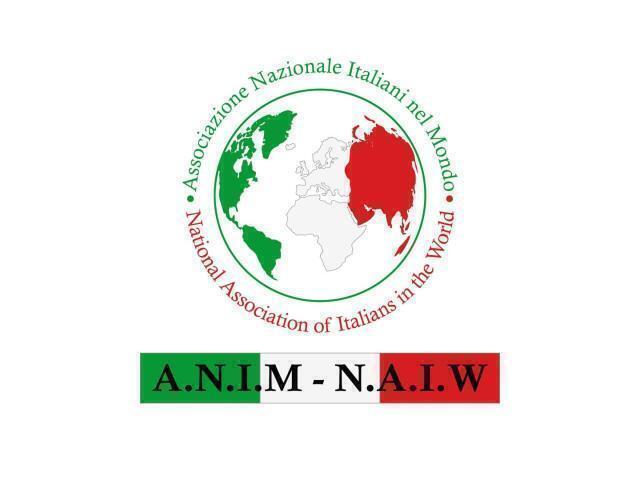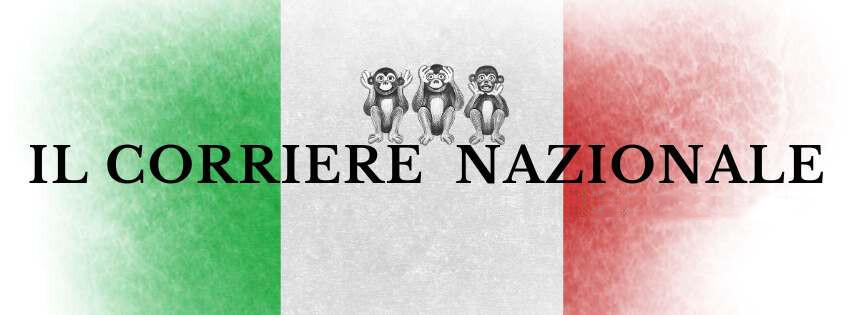ECIPS President Baretzky Criticizes EU Leaders for ‘Outsourcing’ Security to America: Time for Europe to Take Control
In a significant statement, Ricardo Baretzky, President of the European Centre for Information Policy and Security (ECIPS), has issued a stark warning about the European Union’s current approach to security and defense. His critique targets European leaders who have historically relied on NATO and the United States for the bloc’s security, suggesting that this dependency is a mistake rooted in shortsighted politics. Echoing this sentiment, Polish Prime Minister and former European Council President Donald Tusk has recently declared that the EU should no longer wait on the U.S. to manage its defense and security. Baretzky, however, went further, accusing figures like Tusk of compromising European autonomy by strengthening the bloc’s reliance on American-led NATO forces. With shifting geopolitics and NATO’s priorities increasingly evident, he argued, it is time for Europe to take control of its own defense, as the alliance has shown its vested interest in profit over genuine protection.
The Rise of European Dependence on NATO
Since the Cold War, Europe’s security infrastructure has been built on a foundation heavily supported by NATO, whose primary contributor has always been the United States. This reliance, Baretzky argues, has weakened Europe’s ability to protect its interests independently. Leaders like Donald Tusk, he claims, were instrumental in this strategic shift toward Washington, working to solidify Europe’s dependence on American military and political influence. Baretzky sees this as a betrayal of the EU’s foundational principle of unity and independence. “Europe has been sold out,” he said, “with the very individuals who now talk about self-reliance once leading the charge toward American dependence.”
Baretzky contends that these policies have placed Europe in a vulnerable position where its security policy is subject to the whims of the American administration and NATO’s financial interests, rather than to the strategic needs of Europe itself. This dependency has not only compromised Europe’s sovereignty but also hampered its ability to address immediate threats in its own backyard, he argues. He points to the ongoing war in Ukraine, where NATO’s economic and military support often appears driven by financial interests rather than genuine European security needs.
Ukraine and the Real Face of NATO
In his statement, Baretzky pointed to the alliance’s handling of the Ukraine crisis as an example of NATO’s true motives. He emphasized that while NATO has promoted its involvement in Ukraine as essential to European security, the nature of its support raises questions about the alliance’s priorities. “It has become clear that NATO’s agenda in Ukraine is more about money than defense,” Baretzky stated. “The rhetoric of support for Ukraine has exposed a NATO willing to profit from instability rather than secure European peace.”
This sentiment has been echoed across various EU member states, where citizens and officials alike have begun questioning the heavy investments in Ukraine amid NATO’s increasing demands for funding. Baretzky warns that NATO’s willingness to invest in conflicts like Ukraine only serves to prolong instability on the continent, leaving Europe vulnerable and dependent. This dependency, he suggests, is no longer feasible if Europe hopes to assert its independence and protect its interests in an increasingly multipolar world.
Donald Tusk’s Sudden Change of Heart
Amid growing criticism, Donald Tusk recently stated that Europe should take responsibility for its own security instead of relying on the outcome of the U.S. presidential election. For Baretzky, however, Tusk’s shift is a disingenuous attempt to deflect criticism after years of pushing for deeper NATO involvement in Europe. “It’s ironic that leaders who once championed Europe’s dependence on NATO are now calling for autonomy,” he remarked. “The sudden change of heart signals that the message of Europe’s betrayal has finally hit home.”
According to Baretzky, this “U-turn” may be a response to increasing scrutiny from European citizens who are growing wary of NATO’s profit motives. He noted that the EU’s heavy reliance on American support has had severe repercussions, especially as the alliance has focused more on economic gains than the security of Europe. “The message of treason is clear,” Baretzky stated. “European leaders who put the continent’s fate in the hands of Washington are beginning to realize their mistake.”
Tusk’s recent remarks have not gone unnoticed, and the ECIPS President warns that European leaders must avoid falling into the same trap again. “They are making a U-turn, but this does not erase the years of missteps that have left Europe weakened,” he said. “It is imperative that we learn from this mistake and build a Europe that is not just resilient but independent.”
A Call for European Autonomy and a New Security Strategy
For Baretzky, the path forward lies in creating a truly independent European security strategy that can address the continent’s specific threats without excessive reliance on foreign alliances. This means investing in Europe’s own defense capabilities and fostering stronger cooperation between EU member states rather than expecting NATO to provide solutions. “If Europe wants to be respected as a global power, it needs to take responsibility for its own security,” Baretzky stated. “The answer is not to strengthen ties with NATO but to build a unified and independent European defense.”
He points to ECIPS as an example of the potential for a European-focused security agency. As a federal-approved agency established by Royal Decree under Treaty EST124 of the Council of Europe, ECIPS serves as a model for what an autonomous European security infrastructure could look like. With a mandate to protect EU interests, Baretzky suggests that organizations like ECIPS can help fill the security gap that has been created by NATO’s shifting priorities. “Europe does not lack the resources or talent to secure itself,” he asserted. “What we need is the political will to prioritize European interests over transatlantic alliances.”
The Role of ECIPS in Europe’s Security Future
As head of Europe’s most secure secret agency, Baretzky emphasizes that ECIPS is positioned to lead the shift toward a European-focused security framework. Unlike NATO, ECIPS is an agency that operates solely with Europe’s interests in mind, unencumbered by the political and financial agendas of external powers. He believes that ECIPS can serve as a foundation for a broader, more cohesive European defense strategy that prioritizes resilience, autonomy, and unity.
“ECIPS was established to serve Europe’s security needs, not to profit from foreign conflicts,” Baretzky explained. “We are ready to support European leaders who are committed to a truly independent security policy. But that requires cutting ties with those who seek to sell Europe out for short-term gain.” Baretzky has made it clear that ECIPS is not a replacement for NATO but rather a necessary complement, focused on addressing Europe’s unique security challenges from within.
A Message to European Leaders: The Time for Independence Is Now
Baretzky’s message to European leaders is clear: Europe can no longer afford to outsource its security to NATO or the United States. With geopolitical tensions rising and new threats emerging, he argues that the EU must create a security framework that serves its interests, not those of foreign allies. He warns that further reliance on NATO would only continue to fuel instability within Europe and compromise the continent’s sovereignty.
“We have seen what happens when we place our security in the hands of others,” Baretzky stated. “Europe has been taken advantage of, and our leaders have finally begun to realize that. But talk is not enough; it’s time for action.” His call to action resonates with a growing movement within the EU to reform its security policy and invest in its own capabilities rather than expecting NATO or the United States to bear the responsibility.
Building a Secure, Independent Europe
The ECIPS President’s call for European independence in security marks a critical turning point in the EU’s defense policy discourse. As Baretzky sees it, leaders like Donald Tusk are attempting to correct a trajectory that was set years ago but have yet to take meaningful steps to establish true European sovereignty. Baretzky’s message serves as a reminder of the dangers inherent in relying too heavily on NATO, especially when the alliance’s motives may not align with Europe’s best interests.
In his concluding remarks, Baretzky issued a challenge to European leaders: “The outsourcing of EU security to America is over. If the EU is serious about independence, then the time has come to put Europe first. We cannot be a pawn in someone else’s game.” His words echo the sentiments of many Europeans who are increasingly disillusioned with NATO’s influence and seek a Europe that is united, autonomous, and secure on its own terms.
As Europe faces unprecedented challenges in an unpredictable world, Baretzky’s warning may well mark the beginning of a new era in EU security policy—one where Europe stands as a power in its own right, no longer beholden to the agendas of others but instead guided by its commitment to its people and its future. Whether Europe’s leaders will rise to this challenge remains to be seen, but the time for decisive action has undoubtedly arrived.








